Unmothered
Marie-France Guerrette
2018
| 72 min
Selections and Awards
La Vague Prize - Official SelectionFestival international du cinéma francophone en acadie (FICFA) 2018
Official SelectionRendez-vous du cinéma québécois 2019
Audience Choice Award for Best Canadian FeatureNorth West Fest 2019 - Edmonton, Alberta
On August 31, 1995, tragedy struck the Guerrette family when Mona, a mother of two, died from breast cancer at age 42, leaving behind a husband and their daughters, Mylène and Marie-France. But she also left behind a stirring farewell message that would serve as a testament to her life.
How do you survive such a heartbreaking loss when you’re only a child? In putting her life and that of her family up on the big screen, Marie-France Guerrette shares her own private experience of grief with viewers. Interspersed throughout the story, grainy and emotionally charged video footage reconstructs the family mythology. The director points the camera at her loved ones and records heartfelt interviews that have a liberating effect. In the course of her filmmaking journey, the director also discovers an oppressive legacy that she must contend with: the risk of genetic cancer. Gently opening the door to the grieving process, this touching documentary about the filmmaker’s family is a call to action—and a possible roadmap back to the land of the living for anyone who’s ever experienced the devastation of losing a loved one.
“The bereaved must reconstruct, through words, the lives of those who are no longer with us.”
— Johanne de Montigny, Psychologist
When the Past Determines the Future
On August 31, 1995, tragedy struck the Guerrette family when Mona, a mother of two, died at age 42 of an aggressive form of breast cancer that had attacked her bones. She left behind an inconsolable husband and their young daughters, Mylène and Marie-France.
How do you grieve, how do you survive loss when you’re only a child, and nothing has ever prepared you for it? And as an adult, how do you make decisions about the future knowing that this disease could be passed on from mother to daughter?
In choosing to put her life and that of her family up on the big screen, director Marie-France Guerrette shares her private grieving process with viewers and ultimately re-appropriates her own personal story before our very eyes. From the cemetery—where the name on the gravestone is starting to fade—to the family garden, which needs to be completely redone, and from the cassette tape Mona recorded to the Super 8 home movies deftly woven into the story, this documentary revisits places from the past in a quest to put together the pieces of the person who has passed away—to create a composite image which, though worn by time, is illuminated by everyone’s love for the family member they’ve lost.
Moving Archival Footage
Accompanying the storyline like trail markers along the way, grainy and emotionally charged home movies reconstruct the family mythology at 18 frames per second: a look back at a kind of paradise lost, where everyone is young, smiling and healthy. The family appears united, carefree, gathered around the Christmas tree or a good meal, or watching the antics of Marie-France, who was already making home movies at that time and narrating what she was seeing. Mona looks radiant: her eyes, gentle and luminous; her smile, warm. Alive.
Pointing the camera at her loved ones, the director gives the floor to her father, her sister, her aunt, and her mother’s friends. Many of these raw, emotional interviews represent the family’s first attempt at talking about a drama that had unfolded more than 20 years ago. “Comment tu veux en parler avec quelqu’un qui a 10 ans? Il fallait continuer,” says Mylène, the younger sister. And so the absence was compounded by silence, which the documentary is now breaking—words that liberate. By giving their grief a voice, the family is opening the door to new possibilities. “Ça a débloqué quelque chose, comme un fardeau enfoui,” says the father, just before he decides to plant this brand-new garden on top of Mona’s flowerbeds, which had been neglected since her death…
Genetic Cancer
In the course of her filmmaking journey, the director also discovered an oppressive legacy to contend with, lifting the veil on her family’s medical history: her maternal grandmother was diagnosed with breast cancer the same week as her daughter Mona, and they both had a mastectomy on the same day. Their story was broadcast on TV. For the young woman, a new piece of information has just entered the equation: the risk of developing cancer rises sharply for women who carry the genetic mutations BRCA1 or BRCA2, which drove actress Angelina Jolie to have her breasts removed in 2013 as a precaution. Because she’s approaching the age at which her mother was diagnosed, Marie-France, 35, unmarried, no children—“Pourquoi avoir des enfants si c’est pour les abandonner?”—has a difficult choice to make: take the screening test or not? Is she at risk or isn’t she? Since our past affects our future, her decision can have grave consequences…
On August 31, the anniversary of Mona’s death, Marie-France decides to take the genetic test before our very eyes… because “savoir, c’est pouvoir.” Gently opening the door to the grieving process, this touching documentary serves as a call to action—and a possible roadmap back to the land of the living for anyone who’s experienced the devastation of losing a loved one.
Dad’s garden yields a good harvest.
On the cassette Mona had recorded, her voice goes quiet.
“Mom’s gonna go now.
I love you, Marie-France.
And be brave.”
Director's Note
As a storyteller, my favourite part about making a documentary is the process of discovery.
When you begin a new project, you’re armed with an idea and a bit of research. Eventually, if you’re lucky, a rich narrative unfolds, and that initial idea grows into a more inspired and thoughtful project than you’d initially anticipated.
My experience with this film was certainly like that. As a person who possesses an enormous degree of curiosity about the behaviour of others, I rediscovered why my own narrative mattered so much.
I felt very alone and empty when I started working on Unmothered, and I felt like I’d changed a lot by the time I’d finished it. The journey I took goes far beyond the 72 minutes you see on the screen. Everyone I met, interviewed, cried with, laughed with and held in my arms influenced the outcome of the film and the experience I lived.
At first, I wanted to study others, other girls and women who had lost their mothers. I didn’t want my own relationship with grief to influence the film too much, because I wanted it to be the story of others as much as mine. Having worked as a documentary film director for many years, I felt much more comfortable telling someone else’s story. When I realized that the true story of this film was deep inside of me, and only me, I thought, “Oh, crap!”—and I knew I had to jump in, because it was time, and my life depended on it.
When I finished the final cut of the film, I needed about two months to fully recover from the emotions I’d stirred up over a three-year period. Once that recovery took place, I woke up and started to re-enter the real world armed with everything I’d learned, everything my mother was trying to tell me. This learned knowledge is what I have now handed over to the audience. Although it’s my personal journey, I still believe that this is your story, too.
I hope this film sheds light on our ideas about experiencing grief at a young age. Children are seen as resilient little beings. A grieving child, however, is broken and is not equipped with the emotional tools to understand how to fix the brokenness. Not everything their dad, aunt, or teacher tells them is right… or right for their development. I believe that we need to evaluate the message we’ve internalized about death that might be holding us back from allowing grieving children to fully understand what is happening and how to cope and develop into healthy adults.
Once audiences see the film, my greatest hope is that when bereaved people decide to dive into their own pool of grief, they’ll do it because they feel like they need to, and they’ll feel inspired to dive in without limits or hesitation. I hope the film will help those who have been grieving for a long time to let go of the belief that they’re destined to be a little bit more miserable than others because their mom or dad died—as if they didn’t deserve lightness, wholeness, happiness.
I’ve learned this and so much more from my mother, someone who was actually dying when she spoke her last words with conviction, strength and bravery. She wanted us to keep growing but not to forget the memories she created for us. I believe that my mom knew me better than anyone else and she wanted to help me become my best self, even after she died. We did this together, we completed a film together, and that is love. That is courage.
With this film, my mom helped me re-write my own narrative. I was finally able to find my own voice through the experience of making the documentary. I had to lay my grief out on the table, say things out loud, meet people, write things down and read them back to myself, watch hundreds of hours of myself on a huge screen to find my voice. But most importantly, I needed my mom to hold my hand and help me find it.
Grief can take many forms. One path isn’t any less worthy or more healing than another. People are taken from our lives, but we still have our lives to live, and I hope that this film will start conversations and encourage other unmothered men and women to write the ending of their own stories.
Trailer
Promotional Materials
Team
Marie-France Guerrette
Director
Photo
Denis McCready
Producer (NFB)
Photo
Photo : NFB
Dominic Desjardins
Producer (NFB)
Photo
Images
Loading...
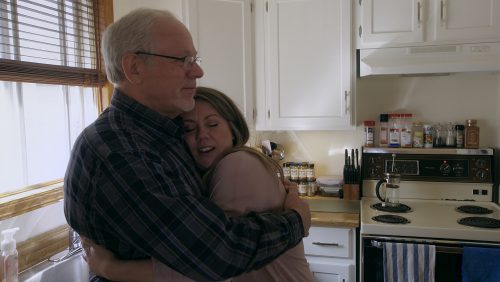
Download
Loading...
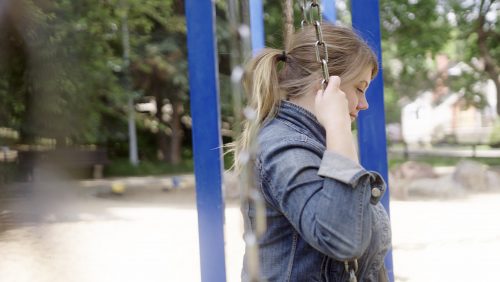
Download
Loading...
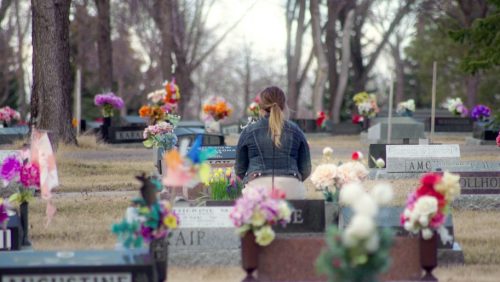
Download
Loading...
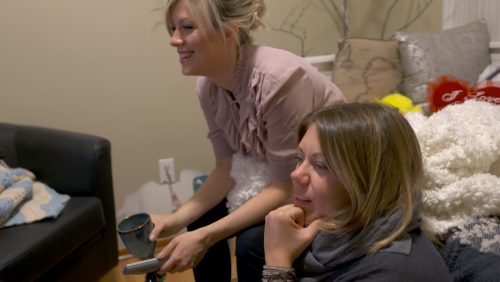
Download
Loading...
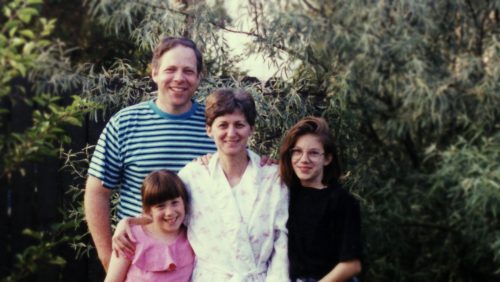
Download
Loading...
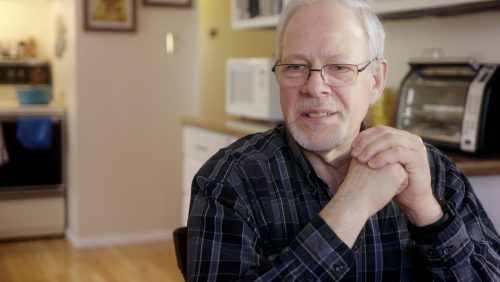
Download
Loading...
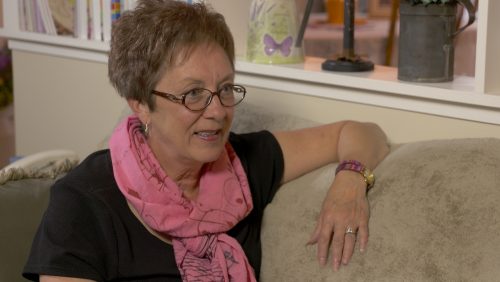
Download
Loading...
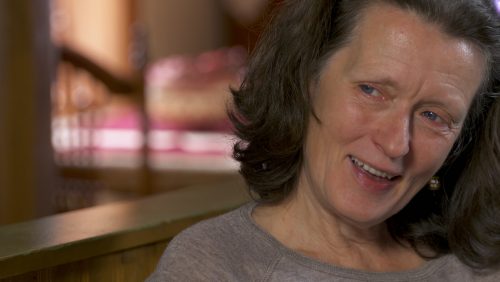
Download
Loading...
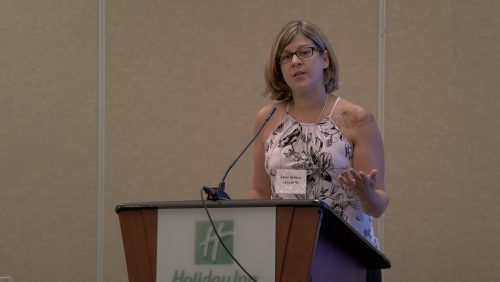
Download
Loading...
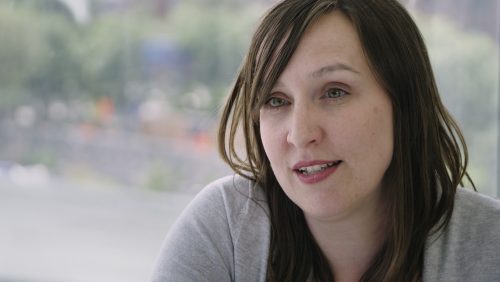
Download
Loading...
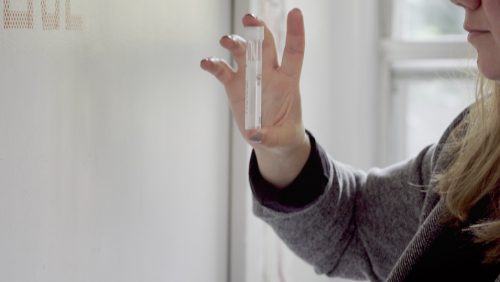
Download
Loading...
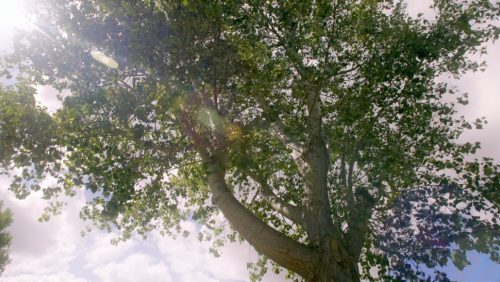
Download
Loading...
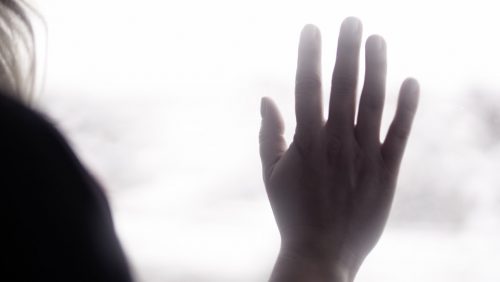
Download
Loading...
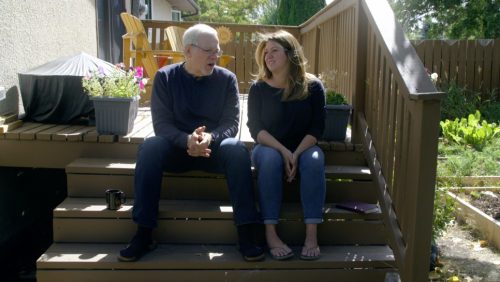
Download
Loading...
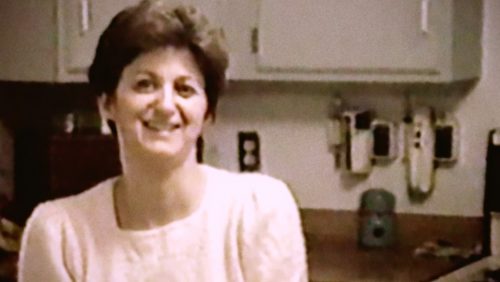
Download
Loading...
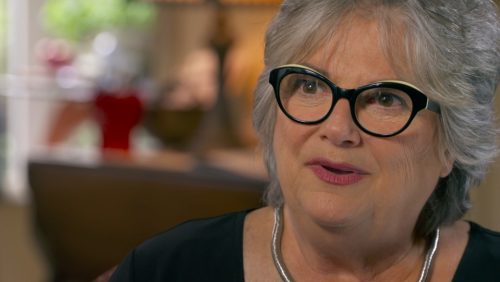
Download
Loading...
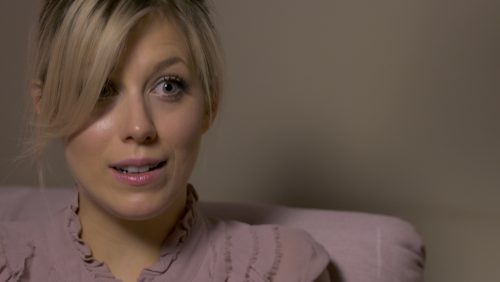
Download
Loading...
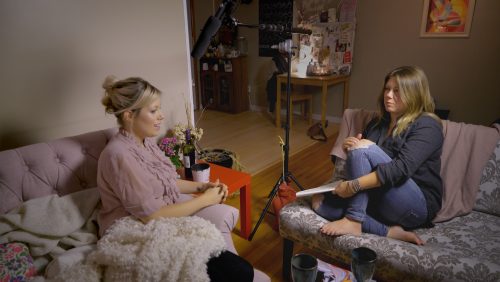
Download
Loading...
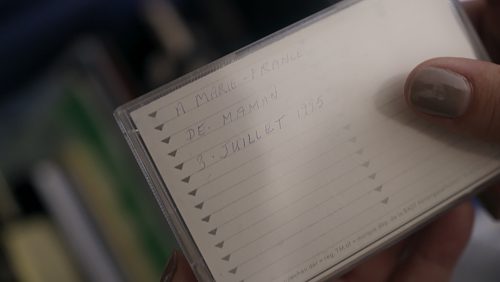
Download
Loading...
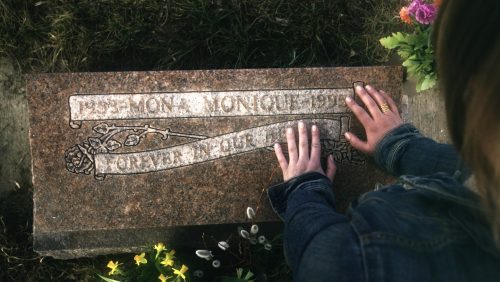
Download
Credits
Written and Directed by
Marie-France Guerrette
Participants
Jacques Guerrette
Mylène Guerrette
Murielle Leblanc
Micheline Picard
Carmelle Hagen
Johanne de Montigny
Nadine Dumas
Karen Malkin – Lazarovitz
Camera
Sergio Olivares
Jean-Marc Abela
Location Sound
Jamie Kidd
Stéphane Bourgeault
Richard Lavoie
Editing
Pauline Decroix
Sound Editing
Daniel Toussaint
Research
Doris Lapierre
Original Music
Chloé Lacasse
Geneviève Toupin
Musicians
Piano and keyboard
Chloé Lacasse
Geneviève Toupin
Violin
Guido Del Fabro
Camera assistants and additonal images
Tamarra Canu
Vanessa Abadhir
Foley
Stéphane Cadotte
Foley Recording
Geoffrey Mitchell
Online Editing
Yannick Carrier
Sound Mixing
Jean-Paul Vialard
Infographics and Titles
Cynthia Ouellet
Subtitles
MELS
Studio Team
Marketing Manager
François Jacques
Marketing Coordinator
Jolène Lessard
Production Coordinators
Laura Bergeron
Aliou Diallo
Théo Belnou
Administrators
Alexandrine Torres de Figueiredo
Geneviève Duguay
Technical Coordinator
Daniel Claveau
Technical Support
Patrick Trahan
Isabelle Painchaud
Pierre Dupont
Technical Audio Support
Bernard Belley
Legal Counsel
Peter Kallianiotis
Line Producer
Alexandrine Torres de Figueiredo
Post-production Producer
Denis McCready
Executive Producer
Dominic Desjardins
Produced by the
National Film Board of Canada
In collabration with
Unis TV
Media Relations
-
About the NFB
For more than 80 years, the National Film Board of Canada (NFB) has produced, distributed and preserved those stories, which now form a vast audiovisual collection—an important part of our cultural heritage that represents all Canadians.
To tell these stories, the NFB works with filmmakers of all ages and backgrounds, from across the country. It harnesses their creativity to produce relevant and groundbreaking content for curious, engaged and diverse audiences. The NFB also collaborates with industry experts to foster innovation in every aspect of storytelling, from formats to distribution models.
Every year, another 50 or so powerful new animated and documentary films are added to the NFB’s extensive collection of more than 14,000 titles, half of which are available to watch for free on nfb.ca.
Through its mandate, its stature and its productions, the NFB contributes to Canada’s cultural identity and is helping to build the Canada of tomorrow.